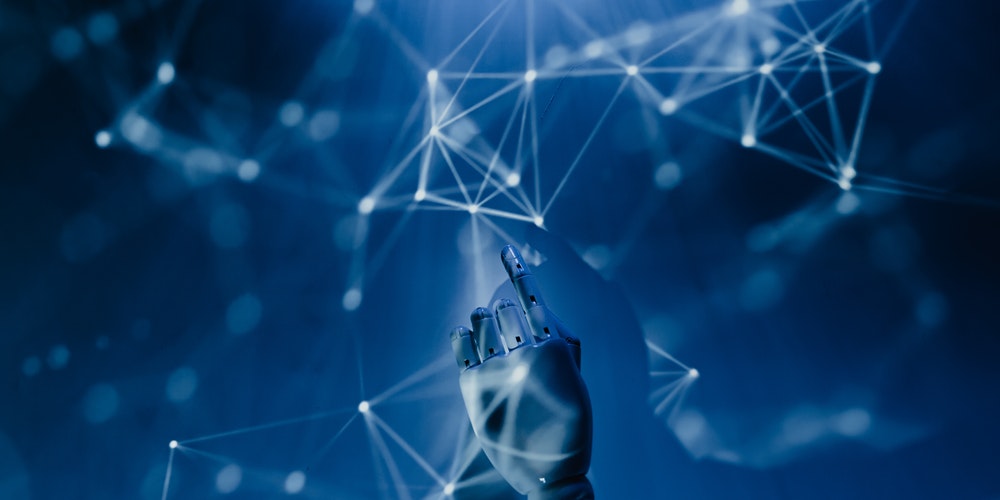Artificial Intelligence in Internal Audit: A New Era of Efficiency
Artificial Intelligence | 30-05-2022 | Muhammed Mursi

We are all familiar with internal auditing if the organization we are working in is concerned and committed to enhancing risk management, regulatory compliance and governance processes thereby aiming to improve overall business performance. Internal audit functions have adapted to the changes that came with the digital transformation, especially following the pandemic scenario. By getting on pace with new-age technologies, internal auditing is expected to be more rigor and strict in its monitoring and evaluations and the identification of inefficiencies, non-compliances and prevention of losses, misplacements and disruptions. The outcomes of internal audit work feature disparities in regulatory competencies, quality and other critical aspects and this clearly requires contextualized tracking and quick assessments.
As the corporate and digital world became so much advanced, so do the documents and records. But even the audit teams today have all the ways to access those, it is certain that it comes with the burden of very limited time or maybe, no time to review and evaluate them all. Data overload paves the way to data creeps that in turn cause decreased visibility. The internal audit function plays a pivotal role within a company's assurance system. This is because advice against possible risks, threats and such dangers is identified and shared through the internal auditing session and this kind of assurance gets coverage to this extent by no other sessions.
With the advent of digital transformation in the past years, auditors make the best use of new and centralized solutions to aggregate and monitor organizational data to make their work a lot more authorized and quicker. In the internal audit role, technology is a significant contributor to performance and profitability. Innovations such as artificial intelligence (AI) can transform internal audits. Some audit firms have already begun to adapt and deploy AI which includes identifying important lease terms, patterns, and outliers. AI adoption in the workplace results in quality audits, increased efficiency, continuous monitoring, improved performance accuracy, and hassle-free audits.
AI potentials: Why Artificial Intelligence for Internal Audit?
Organizations are putting pressure on the internal audit function to deliver results to satisfy stakeholder assurance demands and prevent emerging threats. As the large volume of documentation/ record keeping delays the process of internal auditing in large organizations, it calls for the requirement of an automated approach. Automating internal audits is necessary to speed up response time, sampling-based audit planning, and keyword searches. If the gaps and losses are not sorted out at the right time, the quality of the audit also gets affected.
Here in these cases, Artificial intelligence shows up to be a workflow automation solution that can interpret numerous audit findings and reports thereby organizing them in a relevant manner. With Artificial Intelligence solutions issues can be directed to known industry-wide concerns: covering audit coverage in depth, conducting better investigations of internal audit reports, and ensuring best practices during internal audits. Consequently, auditors can focus on potential high risks and anomalies.
A nuanced look at transactions that look unusual can also be achieved by using AI. An AI program could reveal, for instance, how the accounts receivable ledgers of one location are showing unusual sales reversals. Auditors would be able to pinpoint the problem the following quarter. Internal audit using deep learning to enhance business outcomes without affecting audit quality is also a promise for the present and future to come. This way, understanding a project's scope of work can lead to more discoveries of efficiency as more people involved in the planning are empowered to ask questions concerning process and performance improvement. Employing a potential Internal audit software solution can also do a lot of possible enhancements in audit management.
According to Eulrich and Masli, AI can help the internal audit process by accelerating the planning and execution of activities related to corrective and preventive actions.
The AI-powered audit management solution enables audit managers to automate mundane document understanding tasks, giving them more time to coach and mentor their teams. AI and auditors can work in unison to escalate workflow and efficiency. Artificial Intelligence does improve audit effectiveness by providing more tools and potential findings to work with.
Over time, AI algorithms become more intelligent at identifying patterns and swifter at solving issues as they test the accuracy of each iteration and make corrections before the upcoming cycle of operations. In an ever-changing technological world, AI is becoming increasingly popular among organizations that are looking for new ways to improve their work environments and lives. It shows greater promise and advancement every day.


.jpg)

.jpg)
.jpg)
.jpg)
.jpg)
.jpg)

